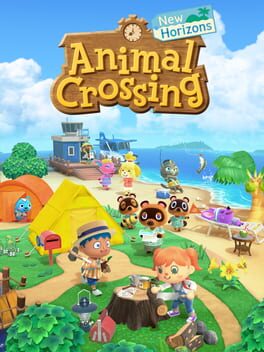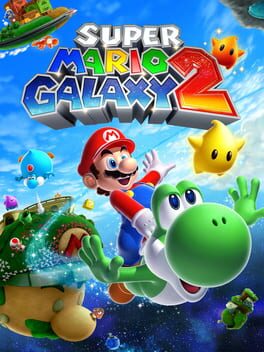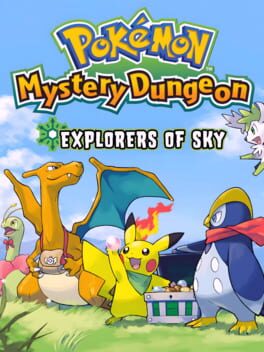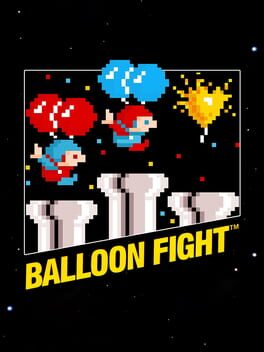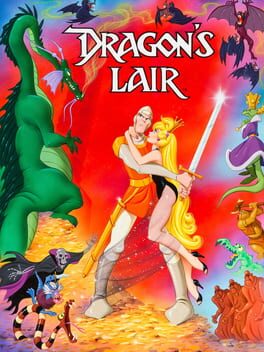WyattW
6 reviews liked by WyattW
This review contains spoilers
Traditionally sequels deepen the world of and around the first installment, and deepen our connections to the characters by challenging them in greater ways than we've seen with them before. Metal Gear Solid 2 goes further in those typical sequel-related regards, but also deepens our understanding of our connection to media in general. It's not just Metal Gear Solid, or video games, or interactive media. It's literally all of it.
If every decision behind the first game didn't feel artistically motivated, Sons of Liberty is almost unfathomably dense by comparison. You name a flaw that isn't quality of life related or something to do with controls, and it contributes to something deeply embedded within Kojima's four-dimensional dodeca-narrative. To say nothing of the meta aspect of why the story is similar to that of the first in many ways, think back to how you first felt playing the game after 1, and how you tried to shake off every sense of familiarity. The new context is what you focus on deliberately, but really that's a battle we shouldn't have to fight. We ignore the history of art, we ignore the messages we consistently see, we rarely try to connect the dots. We often do everything in our power to stay locked into the ride, and thus unwittingly take part in the simulation.
However much we try to ignore the way our reality is becoming a simulation, whether we can even be classified as players (are we truly free?), the game is being played somehow and by someone. I guess the joke here is that if you're not informed on the subject, you might as well be an NPC, but that would reduce the game's ideas to memes, and not the MEMES that are its subject.
Speaking of memes, there's a harrowing moment when Stillman discusses his mistakes with training Fatman, but he also realizes that Fatman has developed his techniques beyond that of which he was taught. That being said, he did potentially incubate the walking disaster he became. The problem wasn't that Stillman gave Fatman tools for acts of terror, but perhaps that he didn't give him something more beyond that, not that we should blame him for it. How can you really tell when you're not doing enough for someone? All we can hope to do is more. And that's the cure for all of this modern trauma. If we do things out of the good of our hearts, with sociological and spiritual awareness, then this is not a simulated action. That's more real than anything.
If every decision behind the first game didn't feel artistically motivated, Sons of Liberty is almost unfathomably dense by comparison. You name a flaw that isn't quality of life related or something to do with controls, and it contributes to something deeply embedded within Kojima's four-dimensional dodeca-narrative. To say nothing of the meta aspect of why the story is similar to that of the first in many ways, think back to how you first felt playing the game after 1, and how you tried to shake off every sense of familiarity. The new context is what you focus on deliberately, but really that's a battle we shouldn't have to fight. We ignore the history of art, we ignore the messages we consistently see, we rarely try to connect the dots. We often do everything in our power to stay locked into the ride, and thus unwittingly take part in the simulation.
However much we try to ignore the way our reality is becoming a simulation, whether we can even be classified as players (are we truly free?), the game is being played somehow and by someone. I guess the joke here is that if you're not informed on the subject, you might as well be an NPC, but that would reduce the game's ideas to memes, and not the MEMES that are its subject.
Speaking of memes, there's a harrowing moment when Stillman discusses his mistakes with training Fatman, but he also realizes that Fatman has developed his techniques beyond that of which he was taught. That being said, he did potentially incubate the walking disaster he became. The problem wasn't that Stillman gave Fatman tools for acts of terror, but perhaps that he didn't give him something more beyond that, not that we should blame him for it. How can you really tell when you're not doing enough for someone? All we can hope to do is more. And that's the cure for all of this modern trauma. If we do things out of the good of our hearts, with sociological and spiritual awareness, then this is not a simulated action. That's more real than anything.
It's still Animal Crossing, so the gameplay loop remains rewarding and relaxing by design. If you want visible evidence of how much effort you've put into a game, this franchise will always give you that. You also have more control over the look of your island than any town you did in previous entries. The freedom of personalization is arguably too much, at least by the time you obtain a landscaping permit.
With that being said, Nintendo has missed a good opportunity to craft the ultimate Animal Crossing experience. They relied too much on the ability to update the game through online connection with DLC (albeit free). I was already bored of the game by the time even the first of those began rolling out. The multiplayer experience felt severely limited based on what I had anticipated the game having (we can cut down friends' trees but not exchange items through yard sales in person?), and to top it all off, the neighbor characters take a very upsetting backseat to the adventure. The dialogue is far more redundant than it was in 2002 and 2005, and I almost never want to talk to anyone. It's harder to think of them as sentient, they're very much NPCs now. I recall playing games with characters in Wild World, and I've not had one such experience with anyone in New Horizons. There's plenty to do, but it's a lonely game.
With that being said, Nintendo has missed a good opportunity to craft the ultimate Animal Crossing experience. They relied too much on the ability to update the game through online connection with DLC (albeit free). I was already bored of the game by the time even the first of those began rolling out. The multiplayer experience felt severely limited based on what I had anticipated the game having (we can cut down friends' trees but not exchange items through yard sales in person?), and to top it all off, the neighbor characters take a very upsetting backseat to the adventure. The dialogue is far more redundant than it was in 2002 and 2005, and I almost never want to talk to anyone. It's harder to think of them as sentient, they're very much NPCs now. I recall playing games with characters in Wild World, and I've not had one such experience with anyone in New Horizons. There's plenty to do, but it's a lonely game.
Super Mario Galaxy 2
2010
I reckon Galaxy fans would admit that much of what was special about the original game was its cinematic flair. Nintendo struck a comfortable balance between traditional gameplay and cutscene spectacles and thus avoided having Mario appear too ridiculous within a high-stakes, ambitiously presented story (at least for the franchise). Strip that subtly emotional charm away and what's left?
Galaxy 2 is immediately less special. The intro's side-scrolling presentation brings the New Super Mario Bros. series to mind moreso than Galaxy. The new hub, the "Faceship", leaves little room for curiosity. There's no exploring to be done here. The observatories are removed and in its place you have rudimentary world maps that are the least captivating in the franchise since Yoshi's Island in 1995. Remember in the first game when you had rings that measured out the distance galaxies were from the observatory?
Perhaps some of the level design is tighter, but what good is it when the team has lightened up the experience to the point where it's hard to take seriously? Where's Rosalina to add mystery to the cosmos? Where's the sense of galaxies being actual worlds that characters live in, instead of just being clearly designed to be obstacles for Mario? Why is Yoshi here? Why are so many more levels and portions of levels two-dimensional?
Galaxy 2 can be fun, but you'll be fine with taking breaks. You won't be worried about Peach, about how to help Rosalina. It's just a video game.
Galaxy 2 is immediately less special. The intro's side-scrolling presentation brings the New Super Mario Bros. series to mind moreso than Galaxy. The new hub, the "Faceship", leaves little room for curiosity. There's no exploring to be done here. The observatories are removed and in its place you have rudimentary world maps that are the least captivating in the franchise since Yoshi's Island in 1995. Remember in the first game when you had rings that measured out the distance galaxies were from the observatory?
Perhaps some of the level design is tighter, but what good is it when the team has lightened up the experience to the point where it's hard to take seriously? Where's Rosalina to add mystery to the cosmos? Where's the sense of galaxies being actual worlds that characters live in, instead of just being clearly designed to be obstacles for Mario? Why is Yoshi here? Why are so many more levels and portions of levels two-dimensional?
Galaxy 2 can be fun, but you'll be fine with taking breaks. You won't be worried about Peach, about how to help Rosalina. It's just a video game.
Keep this one in your memories. On my most recent playthrough I felt like I was suffering from the insane degree of repetition. This game treats you like a child, and on a second playthrough this only becomes all the more obvious. Characters recap things that happened minutes ago multiple times in order to solve mysteries.
This botches an otherwise decent narrative with a surprisingly lasting conclusion. It's strange that you don't even become professional explorers until after you beat the game, but that's the saving grace of Explorers of Sky. If you're at all invested in what can be a pretty tedious gameplay loop (I can tolerate it in bits), the postgame is quite expansive and rewarding, perhaps the most so of the franchise outside of Gens 2 & 5. Pursuing legendary Pokemon is much more exciting in this game than doing so in mainline series entries.
There's a lot of utterly tedious defects to improve on, but there's enough here that's worthy of the heavy nostalgia and adulation Explorers of Sky still gets to this day. I love me a good adventure.
This botches an otherwise decent narrative with a surprisingly lasting conclusion. It's strange that you don't even become professional explorers until after you beat the game, but that's the saving grace of Explorers of Sky. If you're at all invested in what can be a pretty tedious gameplay loop (I can tolerate it in bits), the postgame is quite expansive and rewarding, perhaps the most so of the franchise outside of Gens 2 & 5. Pursuing legendary Pokemon is much more exciting in this game than doing so in mainline series entries.
There's a lot of utterly tedious defects to improve on, but there's enough here that's worthy of the heavy nostalgia and adulation Explorers of Sky still gets to this day. I love me a good adventure.
Balloon Fight
1985
Of course it's Joust with balloons, but almost every arcade game from the era was riffing on some year-old idea. However, here we have a greater reliance on proper physics-based momentum, a notable feat for the time.
Sure, it's not something you could play for more than fifteen minutes per sitting, but similarly to all the greatest arcade games, Balloon Fight manages to squeeze tons of tiny moments of tension alongside satisfying small victories. Just within a single round there's plenty to both laugh about and agonize over.
Sure, it's not something you could play for more than fifteen minutes per sitting, but similarly to all the greatest arcade games, Balloon Fight manages to squeeze tons of tiny moments of tension alongside satisfying small victories. Just within a single round there's plenty to both laugh about and agonize over.
Dragon's Lair
1983
In order to get a truly worthwhile experience out of playing Dragon's Lair, which for me would consist of seeing most or all of its 22 minutes of animated footage, you have to treat it as if it were a Sierra adventure game, those of which were still years away. Some of the most appealing material in works like Space Quest and Leisure Suit Larry were seeing what outrageous things would happen when you mishandled a task.
While many are entertaining to watch (the first few times), it becomes an egregious issue here, especially since Dragon's Lair never lets up its intensity. It constantly chokeholds your focus, leaving you in an unending, high stakes but monotonous, button-mashing frenzy. You're rarely, if ever, given the opportunity to appreciate the beautiful artwork, a marvel for its time.
In a way, this is the epitome of games being impossible to rate. Bless you, Don Bluth. Hopefully the movie adaptation isn't quite as agonizing.
While many are entertaining to watch (the first few times), it becomes an egregious issue here, especially since Dragon's Lair never lets up its intensity. It constantly chokeholds your focus, leaving you in an unending, high stakes but monotonous, button-mashing frenzy. You're rarely, if ever, given the opportunity to appreciate the beautiful artwork, a marvel for its time.
In a way, this is the epitome of games being impossible to rate. Bless you, Don Bluth. Hopefully the movie adaptation isn't quite as agonizing.

